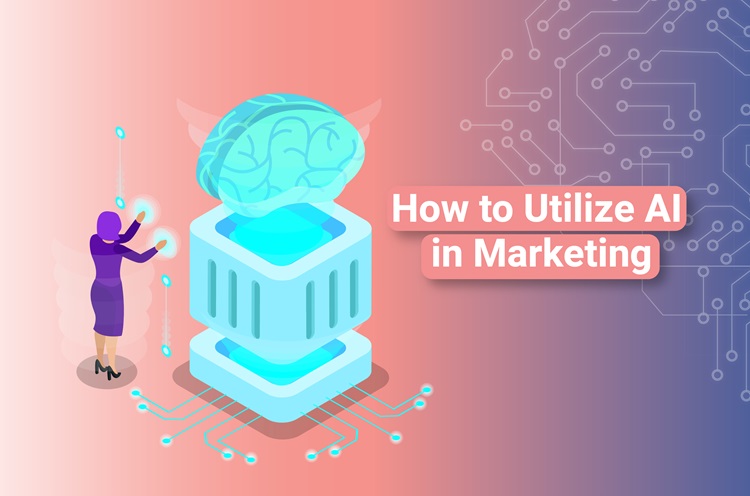Artificial intelligence (AI) is quickly becoming an integral part of marketing strategies. AI technology helps marketers automate tasks, analyze customer data faster, and create more personalized customer experiences. As AI continues to evolve and become more commonplace, marketers need to understand how to leverage this powerful new technology. In this blog, we will discuss the various types of AI applications, how to design an AI marketing strategy and the benefits of AI marketing tools.
How to Design an AI Marketing Strategy
Harvard Business Review suggests that companies should take a stepped approach when implementing AI in marketing. This means starting with rule-based, stand-alone applications that help employees make better decisions, and over time deploying more sophisticated and integrated AI systems in customer-facing situations. To fully realize the technology’s potential, chief marketing officers must understand the various types of applications and how they might evolve.
Classifying AI by its intelligence level (whether it is simple task automation or uses advanced machine learning) and structure (whether it is a stand-alone application or is integrated into larger platforms) can help firms plan which technologies to pursue and when.
AI in Marketing: How to Leverage this Powerful New Technology for Success
A recent study by Price Waterhouse Cooper (PwC) estimates that by 2030, AI will generate more than USD 15 trillion for the global economy and boost local economies by as much as 26%. But what about AI’s potential specifically in the field of marketing?
AI technologies help marketing teams improve their customer relationship management (CRM) programs by automating routine tasks like the preparation of customer data. AI marketing platforms can create AI marketing strategies and analyze data faster than humans using ML algorithms and recommend actions informed by sentiment analysis from historical customer data.
But enterprises who have made the investment and identified an AI marketing solution tailored to their needs are enjoying many advantages. AI marketing tools can help marketers identify actionable insights from data generated by a campaign in near real-time. Modern AI marketing solutions help stakeholders ensure that they are getting the most out of their investment in a campaign.
AI marketing solutions today’s most effective AI marketing solutions utilize AI and ML technologies to enhance customer experiences and deliver meaningful insights to marketers swiftly and accurately. Before choosing an AI tool, organizations should fully explore the different types of AI marketing applications available and look at how they’re being used by other businesses. AI-enhanced dashboards help marketers link the success of their efforts to specific tactics they’ve deployed, helping them better understand what’s working and what could be improved.
AI Marketing — The Complete Guide
ChatGPT has entered the chat, bringing the resurgence of the conversation around artificial intelligence (AI) and marketing. We’ll cover what AI marketing is, how to use it, examples, pros and cons, and marketing strategies that benefit from AI.
AI marketing tools provide recommendations on ad spend and enable marketers to target the right audience to increase performance. AI has been a growing industry and topic of conversation for the better part of a decade. Critical thinking skills should be positioned alongside AI content to empower your team to engage AI effectively and accurately.
Chatbots, created with natural language processing (NLP), can solve quick problems for customers, help nurture leads, answer repeated questions, and more. This insight can help marketers develop better campaigns that actually produce sales and ROI. They’ll also learn to rely on first-party data to guide generative AI to produce customer-focused outputs that align with their brand.
Conclusion
AI is quickly becoming an integral part of marketing strategies. AI technology helps marketers automate tasks, analyze customer data faster, and create more personalized customer experiences. Companies should take a stepped approach when implementing AI in marketing, starting with rule-based, stand-alone applications and over time deploying more sophisticated and integrated AI systems in customer-facing situations. To fully realize the technology’s potential, chief marketing officers must understand the various types of applications and how they might evolve. AI marketing tools provide recommendations on ad spend and enable marketers to target the right audience to increase performance. AI customer insights analyze customer data, predicting behaviors such as propensity to churn, and propensity to buy, and suggesting next-best-action for personalized engagement and retention strategies. AI has the potential to help marketers develop better campaigns that actually produce sales and ROI. As AI continues to evolve and become more commonplace, it’s essential for marketers to understand how to leverage this powerful new technology.
